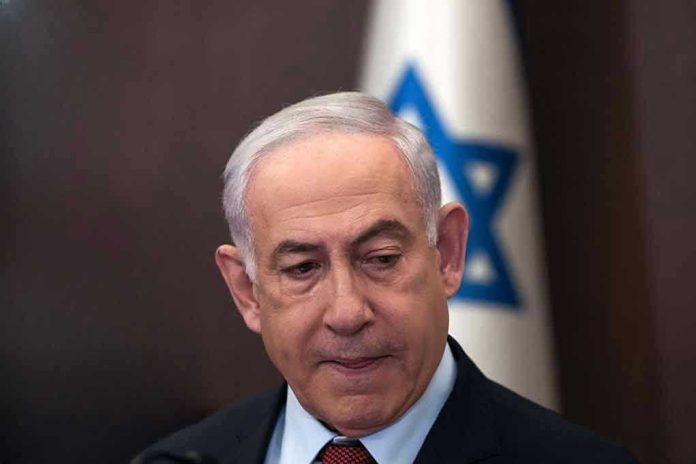
Trump’s ambitious 21-point peace plan for Gaza faces significant resistance, challenging its feasibility.
Story Highlights
- Netanyahu prioritizes the release of hostages and dismantling Hamas over political negotiations.
- Trump’s plan proposes a ceasefire, hostage exchanges, and phased IDF withdrawal.
- All major stakeholders, including Israel and Hamas, express reservations about the plan.
- International pressure mounts as the Gaza conflict remains unresolved.
Netanyahu’s Security Priorities
Israeli Prime Minister Benjamin Netanyahu has made it clear that the release of hostages held by Hamas and the complete dismantlement of the group remain top priorities. This stance follows the unveiling of former U.S. President Donald Trump’s 21-point peace plan, which emphasizes a ceasefire and diplomatic resolutions. Netanyahu’s focus on immediate security concerns highlights the ongoing tension between international proposals and Israel’s domestic imperatives.
The Trump peace plan outlines a series of steps, including a rapid ceasefire and phased withdrawal of Israeli Defense Forces (IDF). It aims to transition governance to the Palestinian Authority, contingent on significant reforms. However, the plan faces skepticism from all involved parties. Netanyahu’s emphasis on security over broader negotiations reflects long-standing issues in Israeli-Palestinian relations, where security often takes precedence over diplomacy.
Challenges Facing the Trump Peace Plan
The 21-point peace plan introduced by Trump seeks to address the ongoing Gaza conflict through a comprehensive approach. Despite its ambitious scope, the plan has encountered immediate resistance from key stakeholders, including Israel, Hamas, and the Palestinian Authority. Each party has voiced concerns about the feasibility and terms of the proposed steps, highlighting the deep-seated mistrust and conflicting interests that have stalled previous peace efforts.
This resistance is not surprising given the historical context of failed peace initiatives and the entrenched positions of the involved parties. The plan’s reliance on a phased withdrawal and external stabilization force poses significant challenges, as similar proposals in the past have struggled to gain traction. The lack of trust between the stakeholders further complicates the potential for a successful resolution.
International and Regional Implications
The international community continues to exert pressure for a resolution to the Gaza conflict, with humanitarian concerns and regional stability at the forefront. The plan’s call for a stabilization force and PA-led governance reflects an international desire for a sustainable peace framework. However, the weakened position of the Palestinian Authority and the entrenched control of Hamas over Gaza add layers of complexity to the proposed transition.
As the situation remains unresolved, the humanitarian crisis in Gaza persists, affecting countless civilians and drawing international attention. The economic and social impacts of the conflict extend beyond the immediate region, influencing global humanitarian aid efforts and security considerations. The outcome of these negotiations could have lasting implications for regional dynamics and U.S. influence in the Middle East.



